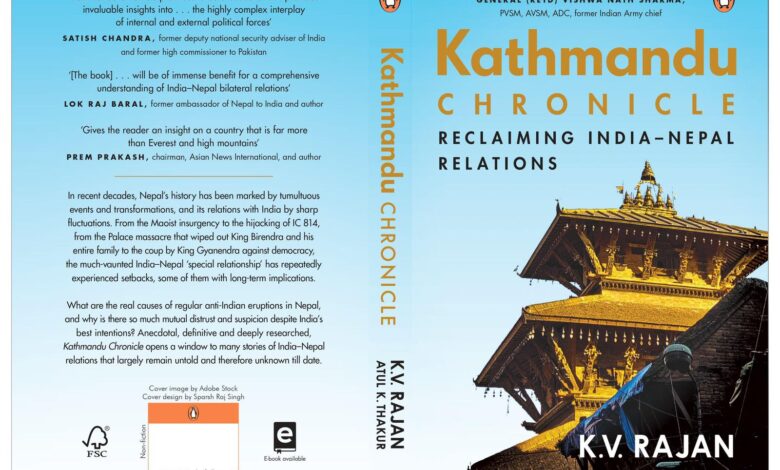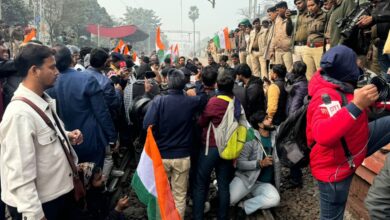Kathmandu Chronicle: A book with new revelations and perspectives on India-Nepal relations
Penguin Random House India Publishes “Kathmandu Chronicle: Reclaiming India-Nepal Relations” by Ambassador K V Rajan and Atul K Thakur

Written by K.V. Rajan, Former Secretary in the Ministry of External Affairs, Government of India and Former Ambassador to Nepal, and Atul K. Thakur, a renowned policy professional, columnist and writer, Kathmandu Chronicle: Reclaiming India-Nepal Relations, the book covers in depth significant aspects of Nepal’s democratic movements, its transition from an absolute monarchy to a federal democratic republic and from a Hindu state to a secular one, the Maoist insurgency, framing of a new constitutio, its foreign policy choices, China expanding footprint—and most importantly India-Nepal relations.
The book combines first-hand experience with deep research to throw new light on key events including the hijacking of IC 814, the Palace Massacre that wiped out King Birendra and his entire family, the coup by King Gyanendra against democracy, and explains why the much-vaunted India–Nepal ‘special relationship’ has repeatedly experienced setbacks, some of them with long-term implications. Based on in depth analysis and new resource materials, Kathmandu Chronicle: Reclaiming India–Nepal Relations is important not only in explaining the how’s and why’s of the past but because of its relevance to the geopolitical uncertainties of the post-COVID world, as India asserts its aspirations on the global stage and China and other major countries raise their own profiles in the region. Both at the level of government as well as civil society, Nepal and India urgently need to come to terms with the past, understand comprehensively and objectively the unique challenges and opportunities offered by the present, and to ‘repurpose’ their relationship if it is to achieve its exceptional potential in the coming years.
India and Nepal must learn from the past but not live in it. They can build a model cooperative relationship for the needs and expectations of tomorrow’s generations, building on their unique common civilizational ties combined with new mindsets and innovative approaches
K.V. Rajan, India’s former Ambassador to Nepal
K.V. Rajan, to date India’s longest serving Ambassadors to Nepal and author of the book, said that “India and Nepal must learn from the past but not live in it. They can build a model cooperative relationship for the needs and expectations of tomorrow’s generations, building on their unique common civilizational ties combined with new mindsets and innovative approaches.”
Atul K. Thakur, a long-time Nepal scholar, public intellectual and co-author, said, “Many books on Nepal and its relations with India have been written by scholars and foreign policy practitioners, Nepalese as well as Indian. Yet too many unanswered questions remain, about the how’s and why’s of the past, the depth and challenges of present trends, and prospects for the future, in an increasingly uncertain post-COVID world.
Many books on Nepal and its relations with India have been written by scholars and foreign policy practitioners, Nepalese as well as Indian. Yet too many unanswered questions remain, about the how’s and why’s of the past
Atul K. Thakur, policy professional & columnist
Premanka Goswami, Associate Publisher, Vintage & Head, Backlist, Penguin Random House India, said, “Historically and culturally, India and Nepal have shared special relationship. Nevertheless, this association has experienced ups and downs. What are the reasons for these issues? Why is there so much mutual distrust between two nations? Kathmandu Chronicle by KV Rajan, India’s longest serving Ambassador to Nepal to date (1995 to 2000) and Atul K Thakur, brings to light many stories of India-Nepal relationship that mostly remained untold and therefore unknown till date. We’re glad to publish the book from Penguin.”




